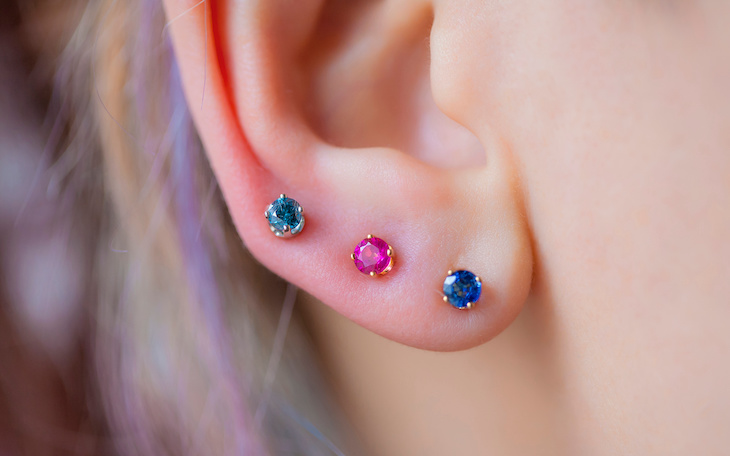While lounging in bed for many is an occasional activity, for the Gen Z set on TikTok, it’s become an entire trend. In fact, earlier this year, Fast Company reported on the trend, referring to staying in bed as “bed rotting.” Although it’s a less-than-appealing way to describe this trend, essentially, it involves staying in bed all day as a form of self-care.
But is staying in bed all day actually good for you—or can it be a sign of a health condition? You may be wondering, “Why do I want to stay in bed all day?”
Let’s dive into this trend, going over both the negative and positive aspects of staying in bed all day and what you might want to do instead.
Is it bad to stay in bed all day?
Paige Rechtman, a licensed psychotherapist, says mental health conditions like depression, dysthymia (or low mood/persistent depressive disorder), and certain phobias can cause people to frequently stay in bed all day.
Whether you’re dealing with a mental health disorder or not, you’re likely asking yourself questions like, “Is it OK to stay in bed all day?” and “Why do I stay in bed all day?” First, you should know that staying in bed isn’t always a bad thing.
“It’s important to think about how being in bed is making you feel,” Rechtman says. “If you need a break from running around all week or are even feeling down about something and want time to process your emotions, by all means, listen to your feelings and your body. Staying in bed all day every once in a while isn’t going to do much harm.”
If you’re staying in bed all day, depression can be to blame, as mentioned, but it also can be a metaphor for your life. According to Rechtman, being in bed can feel comfortable emotionally. If this is the case, it may be a sign that you’re avoiding parts of your life that feel too challenging to address.
“So it may be helpful to think in terms of how being in bed makes you feel in the short-term versus the long-term,” she says. “Is this short-term comfort actually feeding into long-term avoidance or hopelessness? Or is it replenishing me in a way that will help me feel more energized and recovered down the line?”
And then what exactly are you doing while you’re in bed? Rechtman says that you may simply be enjoying time with a partner, a loved one, or even a pet. “But if you’re scrolling all day on your phone or bored staring up at the ceiling, staying in bed may not be the healthiest activity,” she continues.
Also, how is staying in bed impacting your overall functioning? Rechtman poses these questions, for example: Is staying in bed all day happening so frequently that it’s leading to less social interactions or causing stress in your relationships? Is it creating greater feelings of fatigue and impacting your ability to get tasks done at work? Are you not engaging in basic self-care activities, like showering or eating certain meals? Is it hard to find anything enjoyable to do outside of being in bed?
It’s important to think about how being in bed is making you feel. If you need a break from running around all week or are even feeling down about something and want time to process your emotions, by all means, listen to your feelings and your body. Staying in bed all day every once in a while isn’t going to do much harm.
Paige Rechtman, licensed psychotherapist
Rechtman adds that although a bed can feel like a safe oasis, it’s important that you only associate your bed with sleep. Staying in bed too long can lead to sleep difficulties.
“If you’re spending your day in bed awake on your phone, watching TV, or working, it may be more difficult for your brain to associate being in bed with sleeping,” she says.
As long as it’s something that’s occasional that you’re doing as an act of self-care, and not because you’ve given up on participating in life, Rechtman says it’s perfectly acceptable to spend time in bed. In fact, it might be good for you from time to time. As Rechtman points out, everything is OK in moderation.
“I think people tend to see being in bed all day as ‘bad’ when they think it is something they should not be doing,” she says. “Our society puts a lot of pressure on being productive, so if you have a day of no productivity, it can feel like you’re doing something the world doesn’t approve of. But if you are choosing to spend the day in bed because you want to relax in this way, it can become a self-care activity.”
If you’re concerned about your time in bed and have decided that it generally isn’t good for you, Rechtman recommends making it a half-day in bed and a half-day of getting out there in the world.
“It’s important to honor all the parts of yourself, the parts that want to stay in bed and the parts that want to try something new, and finding a happy balance is often one of the healthiest things you can do,” she says.
What to do instead of staying in bed all day
While the bed can often feel so good, especially if you’re not feeling your best, there are other ways you can practice self-care rather than staying in bed all day.
“If you’re someone who wants to stay in bed all day but is starting to feel like it may not be the healthiest form of self-care, find something that is still relaxing, but with new energy,” Rechtman says. This can include spending time in nature, relaxing in a hammock or on a porch, and integrating some movement into your day.
“Even a walk or stretching for 15 minutes can help to energize you a bit more so that you won’t want to get back in bed but instead do something a little more active,” Rechtman says.
She also says exploring new hobbies is a great way to find something else to do with your days. “It may take a little while to find what you like to do but to start, think about things you’ve always wanted to try or enjoyed as a little kid,” she suggests.
FAQs
Why does my body want to stay in bed all day?
Rechtman says when it comes to your mind, there can be a lot of reasons for wanting to stay in bed.
“Firstly, if you’re feeling depressed, staying in bed all day could be related to symptoms of depression, like disinterest in daily activities or feeling overly exhausted,” she explains. “If you have some kind of phobia or intense anxiety that stops you from wanting to go outside, that could also be why you want to stay in bed all day. Or maybe there is some insecurity you’re holding onto that is getting in the way of putting yourself out there, so you choose to stay in bed all day rather than face that fear.”
Sometimes, your mind needs a break from life and you may want to binge a mindless reality show all day to decompress, adds Rechtman. “There is no shame in doing that every once in a while, again, as long as it isn’t happening so frequently that it is having a negative impact on your life,” she says.
Does lying in bed all day make you tired?
“Yes, it can,” Rechtman says. “Moving your body is so important for mental health, and when you lie in bed all day, you aren’t getting the movement your body needs to stay energized and feel good.”
Are you sleeping too much? Here’s how oversleeping can harm your health—and how to prevent it.



